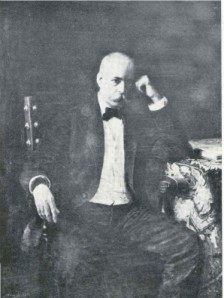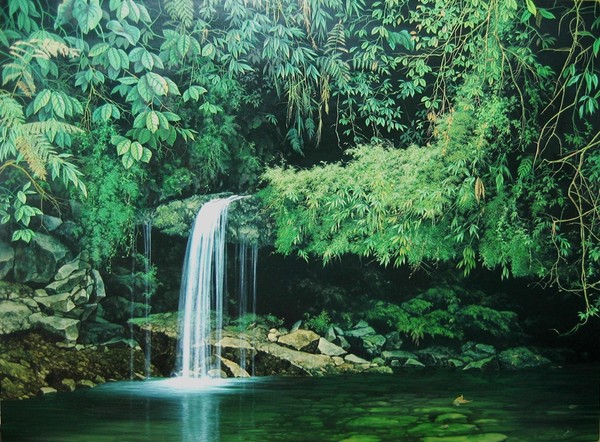ENRIQUE JOSÉ VARONA, PHILOSOPHER, WRITER.
Enrique José Varona was born in Camagüey, 1849 and died in Havana, November 19, 1933, a writer, philosopher, thinker and educator in Cuba. Born in Santa María de Puerto Príncipe province of Camaguey, Cuba April 13 April 1849 received his early education in his home province and shortly thereafter in Havana.
In 1868 the outbreak of the Ten Years War he joined the battle at the end of it in 1878 with Zanjon Pact, joined the autonomy movement and resumed his literary activities that become more intense, dictate, published in The Havana his famous “Philosophical Lectures on Logic, Psychology and Moral”, later to the failure of his tenure as deputy to the Cortes of Spain representing Cuba, breaks with the autonomy.
Between 1885 and 1895 works as free thought, Elegant Havana, Cuban Enlightenment and the Cuban magazine, which published several works of philosophical, political, literary and scientific.
At the request of José Martí in 1895, takes on New York the newspaper Patria, the official independence of the Cuban Revolutionary Party (PRC), and in 1896 gave a talk entitled “The Failure Colonial Spain.”
During the American occupation held the office of Secretary of the Treasury and later of Public Instruction and Fine Arts, implemented the modernization of teaching through the Plan Varona.
With the establishment of the Republic in 1902 is devoted entirely to his work as professor at the University of Havana , reprinted philosophical lectures updated with the most advanced thinking of the century, back to politics and founded the National Conservative Party, and assumes the vice presidency under President Mario Garcia Menocal, between 1913 – 1917.
However, frustrated by the social reality and the beginning of World War enters a period of a distinctly skeptical aphorisms is reflected in his work.
In 1921 delivers his speech “Yankee imperialism in Cuba.” It also assists in the Cuban magazine two months, was honorary president of the Academy of History and member of the Academy of Arts and Letters.
In 1923 chairs in Havana, at the request of the student leader Julio Antonio Mella, the act of foundation of the University Student Federation (FEU). In his later years became the mentor and teacher of Cuban university students, by their attitude to the suspension of the tribute to Rafael Trejo Gonzalez, supports the university reform movement and the struggles of young people to overthrow the dictatorship of Gerardo Machado.
He died on 19 November 1933, at his home in El Vedado, Havana.
Enrique Jose Varona was the author of numerous studies, books, essays on many subjects, among which we mention:
(READ SOME OF HIS WORKS IN THE SPANISH VERSION)
ENRIQUE JOSÉ VARONA, FILOSOFO, ESCRITOR.
Enrique José Varona Nace en Camagüey, 1849 y muere en La Habana, 19 de noviembre de 1933, fue un escritor, filósofo, pensador y educador en Cuba. Nacido en Santa María de Puerto Príncipe, provincia de Camagüey, Cuba, 13 de abril de 1849, recibió su primera educación en su provincia natal y poco después en La Habana.
En 1868, el estallido de la Guerra de los Diez Años se incorporó a la batalla en la final de la misma en 1878 con el Pacto del Zanjón, se unió al movimiento por la autonomía y reanudó sus actividades literarias que se hacen más intensas, lo exijan, publicado en La Habana sus famosas conferencias filosóficas sobre la Lógica, Psicología y Moral “, que más tarde el fracaso de su mandato como diputado a las Cortes de España representando a Cuba, rompe con la autonomía.
Entre 1885 y 1895 trabaja con la libertad de pensamiento, de La Habana elegante, Ilustración cubana y la revista cubana, que publicó varias obras de política filosófica, literaria y científica.
A petición de José Martí en 1895, lleva en Nueva York el periódico Patria, la independencia oficial del Partido Revolucionario Cubano (PRC), y en 1896 dio una charla titulada “El fracaso de la España colonial.”
Durante la ocupación estadounidense ocupó el cargo de Secretario de Hacienda y luego de Instrucción Pública y Bellas Artes, implementó la modernización de la enseñanza a través del Plan de Varona.
Con el establecimiento de la República en el año 1902 se dedica por entero a su trabajo como profesor de la Universidad de La Habana, reimpreso conferencias filosóficas al día con el pensamiento más avanzado del siglo, de vuelta a la política y fundó el Partido Nacional Conservador, y asume la vicepresidencia con el presidente Mario García Menocal, entre (1913 – 1917).
Sin embargo, frustrada por la realidad social y el comienzo de la Segunda Guerra Mundial entra en un período de unos aforismos claramente escépticos se refleja en su trabajo con el enlace.
En 1921 pronuncia su discurso “el imperialismo yanqui en Cuba”. También colabora en la revista cubana de dos meses, fue presidente honorario de la Academia de la Historia y miembro de la Academia de las Artes y las Letras.
En 1923, las sillas en La Habana, a petición del líder estudiantil Julio Antonio Mella, el acto de fundación de la Federación Estudiantil Universitaria (FEU). En sus últimos años se convirtió en el mentor y maestro de los estudiantes universitarios cubanos, por su actitud a la suspensión del homenaje a Rafael Trejo González, apoya el movimiento de reforma universitaria y las luchas de los jóvenes para derrocar la dictadura de Gerardo Machado.
Murió el 19 de noviembre 1933, a su casa en El Vedado, La Habana.
Enrique José Varona fue el autor de numerosos estudios, libros, ensayos sobre muchos temas, entre los cuales podemos mencionar:
Odas anacreónticas 1868
Paisajes de Cuba 1879
Metafísica de la Universidad de La Habana, 1880
Nociones de lógica de 1902
Pequeños poemas en Poesía 1921
Desde mi Belvedere 1907
Violetas y Ortigas 1916
Ensayos filosóficos y la estética literaria Crítica 1918
Emerson 1917
Por Cuba (Discursos) 1918
Desde la Colonia a la República 1919
Con el enlace de 1927
El imperialismo a la luz de la sociología 1933
Wiki/EJVaronaBooks/InternetPhotos/TheCubanHistory.com
The Cuban History, Hollywood.
Arnoldo Varona, Editor.



 ENRIQUE JOSÉ VARONA, Philosopher, Writer. (Born: Camagüey) + ENRIQUE JOSÉ VARONA, Filósofo, Escritor. (Nació en Camagüey).
ENRIQUE JOSÉ VARONA, Philosopher, Writer. (Born: Camagüey) + ENRIQUE JOSÉ VARONA, Filósofo, Escritor. (Nació en Camagüey).

